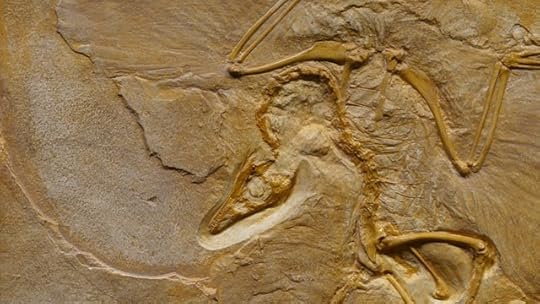Len Varley's Blog
April 19, 2025
The Ballad of Clancy’s Leaning Horse
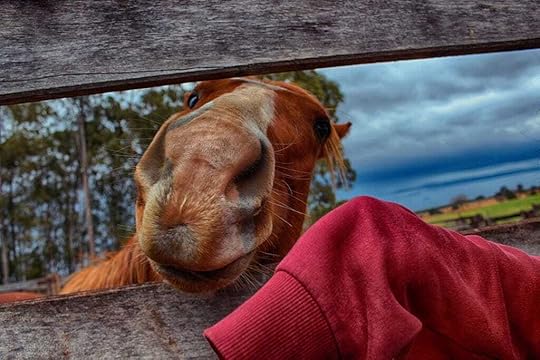 Photo by Priscila Batista on Unsplash
Photo by Priscila Batista on UnsplashLong before the Overflow, the dappled sun-drenched plains;
Before the days of glory, young Clancy took the reins.
The lad was unremarkable, of manner softly spoken
His riding skills were average; his high voice barely broken.
Not yet the stuff of legend in bar-room rough discourse
Just what defined young Clancy was his oddly leaning horse.
Not distorted physically; of fetlocks, flanks or mane
The problem, said the stockman, seemed entirely in its brain.
No matter what the landscape, on the flat lands of the drover
The horse could never stand up straight; it simply tilted over.
It’s heritage was dubious, the dry old bloke confided
Three-quarters Timor pony, one quarter undecided
But such things scarcely mattered, and time would soon endorse
The legend of young Clancy and his strangely slanted horse
“Here comes Clancy’s leaning horse!” would come the mirthful cry
That echoed down the Snowy as the drovers passed them by
A dozen mighty mountain steeds with fetlocks fine and straight
Then Clancy on his laughing stock with clumsy leaning gait
They rode together side by side, each stockman tall with pride
Except for Clancy — slouched upon his oddly leaning ride
And so it went, two summers long, the same old tiresome chants
Until that frightful winter when the Snowy broke its banks.
A dozen finest mountain men had rallied at the sight
When surging waters drove them back and cut them off from life
The cry went out from far and wide, the call to action made;
The finest of the Snowy men were desperate to be saved
There was movement at the station, for the word soon spread around
That Clancy and his crooked horse were headed river-bound
“Who’ll save us?” cried the drowning men “Who’ll stand the water’s force?”
“The only bastard up to it is Clancy’s leaning horse!”
The water’s pull was mighty; the floods showed no abate
Against the wall of water, Clancy’s horse just stood up straight
A dozen times they waded in, the horse with steady gait
Young Clancy of the Overflow, with proud horse standing straight
A dozen times the waters rose and slanted to attack
A dozen times the horse strode out, a man upon its back
A full four hours later, standing safe on solid banks
The stockmen filed up one by one to mutter heartfelt thanks
Rough horsemen praised the plucky lad, and felt the pangs of guilt
Young Clancy merely tipped his hat; his horse resumed its tilt
I still recall the Overflow, the dappled sun-drenched plains;
The glory days, the sunset’s haze — old Clancy at the reins
His riding skills now legend, his life a driving force
It still inspires one question at each end of day’s discourse
What lesson do we learn from this, as we put away our pride?
The man who found his greatness is the man we’d once deride
Perhaps a weakness hides a strength, if we’re willing to endorse;
Behind each man there clearly stands an oddly leaning horse
The Ballad of Clancy’s Leaning Horse was originally published in THE TWISTED WHEEL on Medium, where people are continuing the conversation by highlighting and responding to this story.
Be the Best Train Driver You Can Be
 Photo by Christian Meyer-Hentschel on Unsplash
Photo by Christian Meyer-Hentschel on UnsplashLike so many other people, in my youth I had no idea of what I wanted to do with my life, or exactly what I wanted to be. That is neither surprising nor uncommon.
“What do you want to be when you leave school?” When school guidance counsellors posed that question they invariably referred to the kind of profession or career that one hoped for.
Even as a kid, that struck me as an incredibly bleak and narrow way of looking at life — surely the sum total of a person’s life was not simply the job that they were paid to perform? Was that all that would define me?
As a teenager I had no clear idea of the kind of job that I wanted to do. I simply wanted to be happy, and do the things I loved.
But that was neither a profession nor a job description, so I had no answers the day that I was called into Mr Foley’s office.
I enduring scathing glances from over the pair of spectacles perched on the end of his bulbous nose. So I sat there, painfully shy and uncomfortable.
Ironically, sitting there that day in the stuffy old school guidance counsellor’s office, I came to a realisation of exactly what I didn’t want to be.
So, I let the future take care of itself. That wasn’t anywhere near as easy as it sounds — my best efforts were constantly marred by the feeling that I didn’t match up to the expectations of society or of my elders.
I can clearly recall to this day another classroom incident which further served to reinforce this notion.
I still remember a stern and threatening Christian brother publically humiliated Robert Woodcock in the classroom after our meetings with the guidance counsellor.
Robert had apparently confided in crusty old Mr Foley that his dream was to be a train driver. It seems that all of our earnest responses were being dutifully reported to the Headmaster by the stodgy counsellor.
‘A train driver?’ stormed Brother Fitzgerald in front of all of us. ‘Son, your parents didn’t spend thousands of dollars to put you through a private boys school for you to become a train driver!’
Robert stood there, ashamed and awkward.
And I sat there, resonating with that same sense of shame. I was left with the vicarious sense that I also didn’t make the grade. But I kept quietly following my passion.
I swam and I surfed, and I feel in love with the ocean.
 Photo by Mike Giles on Unsplash
Photo by Mike Giles on UnsplashOne clear passion was music. I loved singing, and music for me was joyous expression. I revelled in it. I formed a band and sang. Very badly. My parents constantly chided me: “Why are you wasting your time playing in a band?
Wasting my time? Perspective is a funny thing — my reality was that I was filling my time with something that inspired me and filled me with great joy. With deep satisfaction.
And yet, their stern disapproval coloured what I did. It put a damper on my joy. Painfully self-conscious, I limped my way through rehearsal after rehearsal. But I kept going, and through dogged determination I got better.
I’m looking at an old newspaper clipping of an interview I did as a budding young lead vocalist with my first band.
The article is an eminently forgettable and cringe-worthy small town parody of the ‘big-time’ rock music magazines like Rolling Stone. It’s replete with the string of stereotypical questions — favourite movie…favourite colour. It ended with the loftily posed question of long term goals and ambitions.
My naively earnest response to that was simply: ‘To look back at my life with no regrets’. There it is, faithfully reported and scribed in newsprint for all time, so it must be true. I was twenty-one years old.
I continued to weather the barrage of slanted comments, even outright pleas from my family to put my time to better use. A couple of years later my band was supporting acts of the calibre of INXS.
I went on to do studio recordings and session work for other bands. My love of music has remained with me all my life.
I discovered there are many ‘armchair experts’ who will gladly tell you what you’re doing wrong and why you will fail. Don’t get me wrong; not every venture was successful. There are many stories, many adventures and many misadventures to be told.
Let me go back to my boldly proclaimed goal, way back there at age twenty-one: ‘To look back at my life with no regrets’.
All these years later, it poses for me something of an interesting question. How exactly does one lead a life without regrets? Is there some sort of a magic recipe?
Looking back at the path I have taken, I believe that one important ingredient is to make a practice of following one’s heart and one’s passion.
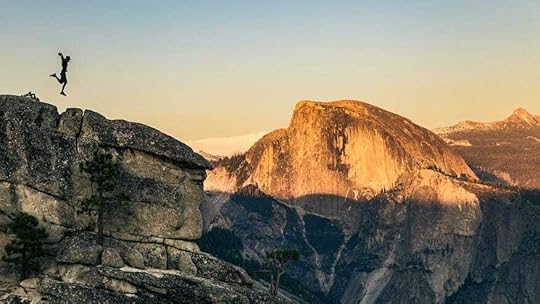 Photo by Arnaud Mariat on Unsplash
Photo by Arnaud Mariat on UnsplashBut there is a little more to it than that. To live with passion implies some degree of risk and impulse; it smacks of the notion of occasionally sailing close to the wind. And to do that is to risk mistakes or the authoring of bad choices.
Surely that must open one to the very real consequence of regret? So here’s the thing about failure — about making a wrong choice. Somehow you have to learn not to fear failure.
That is harder than it sounds; schooling, upbringing and society all wire us to view failure and the making of mistakes as a negative. As a point of humiliation or shame.
So here’s the thing — don’t fear failure or rejection. Don’t be afraid or ashamed of falling over, or falling off.
Or saying the wrong thing, or singing a bum note. Or being told that he/she likes you, but only as a friend. It is all part of the ride.
Oh, and those ‘armchair experts’? They’re typically the ones who have done nothing with their own lives.
I never did find out if Robert Woodcock ever became a train driver. Quite frankly, I would be overjoyed if he did.
[image error]Be the Best Train Driver You Can Be was originally published in THE TWISTED WHEEL on Medium, where people are continuing the conversation by highlighting and responding to this story.
March 8, 2024
Calls For US Protection for Monkeys Amid Smuggling Trial
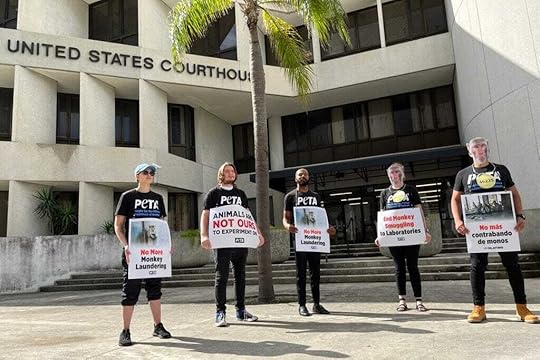 Photo Credit: PETA
Photo Credit: PETAThe trial of Masphal Kry, set to commence at the U.S. District Court for the Southern District of Florida on Monday, 11 March, marks a critical juncture in the fight against animal exploitation and trafficking.
With PETA supporters set to gather outside the courthouse, the case has garnered attention, highlighting the urgency of addressing the illegal trade of vulnerable primate populations.
Supporters will demand that the U.S. Fish & Wildlife Service (FWS) add vulnerable monkey populations, to the endangered species list and put an end to the primate importation pipeline.
These at-risk populations are being decimated by insatiable laboratory demand and the actions of traffickers who capitalize on it.
Background of the CaseMasphal Kry, a deputy director in the Cambodian Ministry of Agriculture, stands accused of federal monkey laundering charges.
These charges stem from a five-year investigation by the U.S. Fish & Wildlife Service (FWS) into a monkey-smuggling ring that targeted long-tailed macaques.
This particular species faces endangerment due to the decimation caused by insatiable laboratory demand.
Investigation and ArrestFollowing an investigation, Masphal Kry was apprehended on November 12, 2022, at John F. Kennedy International Airport during transit through the U.S.
Subsequently indicted by the U.S. Department of Justice (DOJ), Kry faces allegations related to the illegal trafficking of monkeys and their false identification as captive-born individuals, in violation of wildlife protection laws.
Efforts to suppress evidence by Kry’s attorneys in May 2023 revealed stark insights into the extent of the smuggling operations.
Videos filmed by a U.S. government informant in Cambodia depicted Masphal Kry orchestrating and encouraging further illicit activities, exposing the grim reality of the monkey importation pipeline.
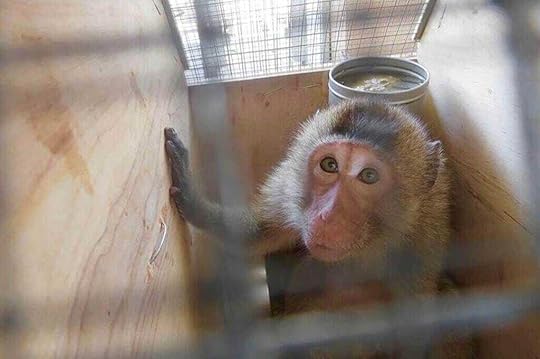 Photo Credit: PETAMonkey-Smuggling Ring
Photo Credit: PETAMonkey-Smuggling RingThe clandestine operations of the monkey-smuggling ring involved the abduction of long-tailed macaques from their natural habitats in Cambodia.
These endangered animals were then falsely labeled as captive-born, facilitating their illegal trade and subsequent use in laboratory experiments across the United States.
The involvement of U.S. companies in purchasing smuggled monkeys underscores the complicity of various entities in perpetuating the trade.
Since 2017, tens of thousands of long-tailed macaques have been funneled from Cambodia to buyers in the United States. These include research institutions, military facilities, and universities.
Transport ConditionsThe plight of long-tailed macaques during transportation epitomizes the cruelty inherent in the monkey-smuggling trade.
Confined to cramped crates and subjected to prolonged periods of darkness amid their own waste, these animals endure unimaginable suffering as they are transported worldwide to satisfy the demands of the research industry.
“The monkey-importation pipeline is rotten from the inside out,” says PETA Senior Vice President Kathy Guillermo.
“PETA looks forward to seeing monkey smugglers held accountable but also for U.S. experimenters, whose thirst for primates is driving this trade, to implement superior animal-free research methods.”
Trial UpdatesThroughout the trial, PETA remains committed to providing daily updates, ensuring transparency and accountability in the judicial process.
Accessible information will be available on PETA.org, enabling concerned individuals to stay informed and engaged in the pursuit of justice for the victims of animal trafficking.
Supporters RallyThe rally outside the U.S. District Court represents the collective voice of supporters demanding action to protect vulnerable primate populations.
Advocates will urge the U.S. Fish & Wildlife Service to designate long-tailed macaques as endangered and halt the primate importation pipeline, thereby safeguarding these animals from further exploitation.
Where: C. Clyde Atkins U.S. Courthouse, 301 N. Miami Ave., Miami
When: Monday, March 11, 9 a.m.
The trial of Masphal Kry serves as a key moment in the ongoing battle against animal cruelty and exploitation.
Shedding light on the grim realities of monkey smuggling and laboratory experimentation, it highlights the urgent need for legislative reforms and ethical alternatives in scientific research.
As supporters gather to demand justice, the outcome of this trial holds profound implications for the future of animal welfare.
[image error]September 11, 2021
Say You Want A Revolution! The Role Of Music In Social Protest
If we were to look closely at any of the key points in humanity’s social and cultural progress, perhaps the one common thread which runs through all of them is the presence of music. Music is arguably one of the most powerful forms of expression available to us, and it forms a virtual soundtrack to our lives — underpinning the highs and the lows. — Len Varley
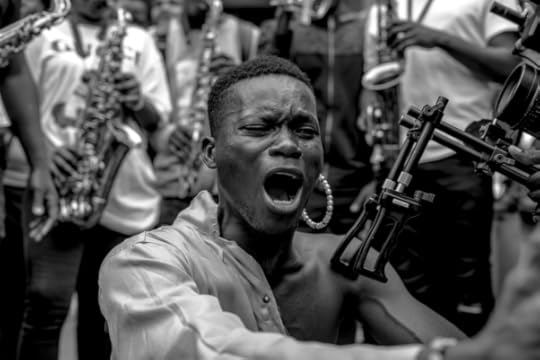 Photo by Ayanfe Olarinde on Unsplash
Photo by Ayanfe Olarinde on UnsplashMost people would be familiar with that sensation of hearing a song on the radio and immediately being teleported to the moment in our lives we first heard it. We associate songs with magical moments — the moment of first love, of marriage, or of the birth of a child. And in the same way we associate songs with more poignant or somber moments, like the final goodbye to a loved one.
Music can truly be seen as the bittersweet symphony which our lives play out to, and it is therefore no surprise that music has played an integral role in periods of social protest and change.
Music & Social ActivismArguably the most powerful musical statement of our era is found in the stark song ‘Strange Fruit’ by jazz vocalist Billie Halliday. The musical story of the ‘strange fruit’ hanging from the poplar trees was possibly the most challenging observation of social injustice — the lynching and hanging of people of color — it stands as both a condemnation and a call to action.
In popular culture, music is now well established in the making social statement and observation. In the modern idiom, this is typified in the voices of folk rock poets like Bob Dylan whose social commentary found sway in the sixties.
And if that is so, then groups such as Len Varley and FreedomBLUE typify a genre of ‘purpose built’ bands who have formed with the sole aim of raising awareness and promoting social activism and change.
The power of musicPerformers like Dylan and Halliday showed us the power of words set to music, but the sheer power of music alone cannot be underestimated. In the words of Hans Christian Andersen: “Where words fail, music speaks”.
Music of itself speaks to the human psyche and the soul, and it carries a power in its own right.
The use of rhythm and beat as a rally call to battle is centuries old. It found a place on the battlefield in the skirling of Scottish bagpipes dating back to the 15th century and beyond. It raised patriotic blood in the fife and drum tattoo of the American Revolution.
Music is life and life is musicIt could be said that the passion for music and the passion for life are intricately intertwined. It could be argued that you cannot have one and not the other.
There are songs which can inspire us to action, and then there are songs which simply speak to the importance of life, with all its highs and lows.
With musical protest, voices are raised to highlight tyranny and injustice. A drum beat forms a rhythmic tattoo to raise the blood and inspire action. When considering the protest of anti-whaling, a song can potentially be as sharp and pointed as a harpoon. In the lament of inequality and injustice, the sung verse can potentially linger for decades, as a stark reminder and an accusation.

May 15, 2021
COVID19 Pandemic — How Australia successfully beat Coronavirus
April 26, 2021
The Sixth Extinction
It may come as something of a surprise to many to learn that we are currently in the midst of what is called the ‘Sixth Extinction’ — that…
February 24, 2021
Why is it always the Pleiades?
“Personally I think the Pleiades is over-rated. It seems everybody comes from there these days.” — Len Varley
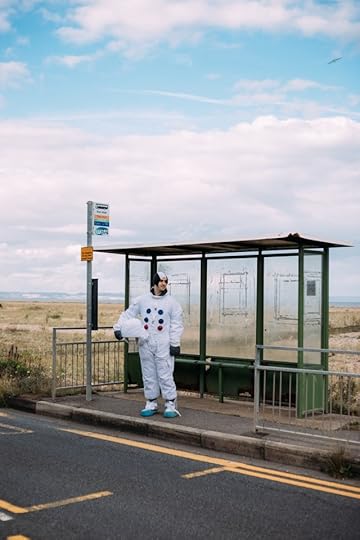
Just recently a friend of a friend confided in me, during a moment of “quiet mystical revelation”. Taking on the wise and all-knowing countenance of the new-age mystic, she drew a deep centering breath, presumably intended to connect with the “other side” before gazing deeply into my eyes with theatrical pause. This stereotypical new-age look usually tells me that they are about to dramatically reveal a pearl of deeper wisdom from the wellspring of universal knowledge to which they believe are uniquely connected.
Sure enough, she proceeded to confide in me solemnly and conspiratorially her recent discovery — that she was in fact from the Pleiades star cluster and had spent many lifetimes here on planet Earth, of her own volition. Taking me into her confidence this way, her grandiose revelation left me with many thoughts and wild images running through my mind. Firstly, how does one actually simply stumble upon the discovery that they are from another planet? And why the hell is it always Pleiades?
“Officer I was abducted by aliens from the Pleiades who told me they were my family. No, it was most definitely the Pleiades….their spacecraft had out-of-state licence plates and a Pleiadean bumper sticker.”
Or perhaps they are innocent victims of happenstance casually going about their seemingly human lives quietly — doing crosswords, watching ‘The Price Is Right” and hanging out washing. Until one fine summer’s day, returning from the supermarket with the week’s groceries; they are confronted with their elderly parents sitting waiting on their lounge; sipping nervous cups of tea with that “we have something serious to tell you” look, as only parents can effect.
“Darling, your father and I have wanted to say something to you for such a long time. Now you know that we love you dearly child but…oh my goodness…this is so hard to say, help me George”.
“My dear what your mother is trying to say is that…now look here, I think you know that you’re different, you always have known. Remember what they always called you in school? It wasn’t just because of your red hair. Look…the thing is you are not from here…you’re Pleiadean”.
Just like that, rather like being told you have just won first division Lotto: “Congratulations, you are Pleiadean! Well done — hopefully this should explain a few things.
Raise your hand if you are one of those people who have a well-connected new-age mystic friend in your life claiming Pleiadean heritage! In all seriousness though, please do not take my earlier humorous observation to be meant as derision. Far from it. The fact is that this phenomena is widespread. What causes humans to act this way? Is it attention seeking? Sometimes.
Perhaps the reason that we conjure and dream such grandiose things is simply to feel like we matter. We want to know why the hell we feel the way we do. We want to know who exactly we are. What is our reason and our purpose? What the heck is all this about?
Well feel an innate desire to know that all of this is worth something. That we are worth something. That as a person we are unique or special, or valued. To a greater or lesser extent, we all earnestly seek out the consolation of relevance.
Personally I think the Pleiades is over-rated. It seems everybody comes from there these days.

February 23, 2021
Time & Tide
They say that time and tide wait for no man. That may be so, but they each leave their own indelible mark on him as they pass — Len Varley

Like so many other people, in my youth I had no idea of what I wanted to do with my life, or exactly what I wanted to be. That is neither surprising nor uncommon. When school guidance counsellors posed that question they invariably referred to the kind of profession or career that one hoped to take up. That always struck me as an incredibly bleak and narrow way of looking at life — surely the sum total of a person’s life was not simply the job that they were paid to perform? Was that all that would define me?
I fretted over this — as a teenager I had no clear idea of the kind of job that I wanted to do. I knew that I wanted to be happy; to live a life of deep satisfaction. But that was neither a profession nor a job description, so I had no answers the day that I was called into Mr Foley’s office. I sat there, painfully shy and uncomfortable. Ironically, sitting there that day in the stuffy old school guidance counsellor’s office, being observed disapprovingly over a pair of spectacles perched on the end of his bulbous nose, I came to a realisation of exactly what I didn’t want to be. Instead I followed my passion. I let the future take care of itself. That wasn’t anywhere near as easy as it sounds — my best efforts were constantly marred by the feeling that I didn’t match up to the expectations of society and of my elders. I can clearly recall to this day another classroom incident which further served to reinforce this; when a stern and threatening Christian brother publically humiliated Robert Woodcock in the classroom after our meetings with the guidance counsellor. Robert had rather naively excitedly revealed that his dream was to be a train driver.
‘A train driver?’ stormed Brother Fitzgerald. ‘Son, your parents didn’t spend thousands of dollars to put you through a private school for you to become a train driver!’
I did my best to shake off the feeling that I in turn didn’t make the grade. But I kept quietly following my passion.
One such passion was music. I loved singing and music for me was joyous expression. I revelled in it. I formed a band and sang. Very badly. My parents constantly chided me — why are you wasting your time playing in a band? Wasting my time? Perspective is a funny thing — my reality was that I was filling my time with something that inspired me and filled me with great joy. With deep satisfaction. And yet, their constant voiced disapproval coloured what I did. It put a damper on my joy. Painfully self-conscious I limped my way through rehearsal after rehearsal. But I kept following my passion, and my drive made me better.
I’m looking at an old newspaper clipping of an interview I did as a budding young lead vocalist with my first band. The article is an eminently forgettable and cringe-worthy small town parody of the ‘big-time’ rock music magazines like Rolling Stone; replete with the string of stereotypical questions — favourite movie…favourite colour…ending with the loftily posed question of long term goals and ambitions. My naively earnest response to that was simply: ‘To look back at my life with no regrets’. There it is, faithfully reported and scribed in newsprint for all time, so it must be true. I see my favourite colour was blue even back then, by the way! I was twenty-two years old.
I still weathered a barrage of slanted comments, even outright pleas from my family to put my time to better use. A couple of years later my band was supporting acts of the calibre of INXS. I went on to do studio recordings and session work for other bands. My passion for music has remained with me all my life. Not so long ago Angry Anderson phoned me to discuss a music project — Len Varley & FreedomBLUE — which I was working on to raise awareness for conservation issues.
Similarly other passions followed through the years, and a simple pattern revealed itself. Without fanfare, I just followed my dreams and my passions, even in the face of criticism or derision. I discovered there are many ‘armchair experts’ who will gladly tell you what you’re doing wrong and why you will fail. Don’t get me wrong; not every idea was successful. There are many stories, many adventures and many misadventures to be told.
Let me go back to my boldly proclaimed goal, way back there at age twenty-two:
‘To look back at my life with no regrets’.
In hindsight, one could excuse my youthful exuberance for this lofty, somewhat grandiose response. But all these years later, it poses for me something of an interesting question. How exactly does one lead a life without regrets? Is there some sort of a magic recipe? Looking back at the path I have taken, I believe that one important ingredient is to make a practice of following one’s heart and one’s passion. But there is a little more to it than that. To live with passion implies some degree of risk and impulse; it smacks of the notion of occasionally sailing close to the wind. And to do that is to risk mistakes or the authoring of wrong choices and failure. Surely that must open oneself to the very real consequence of regret? So here’s the thing about failure; about making a wrong choice. Somehow you have to learn not to fear failure. That is harder than it sounds; schooling, upbringing and society all wire us to view failure and the making of mistakes as a negative. As a point of humiliation or shame.
So here’s the thing — don’t fear failure or rejection. Don’t be afraid or ashamed of falling over, or falling off. Or saying the wrong thing, or singing a bum note. Of being told she likes you, but only as a friend. Or being told you’re not right for the job. It is all part of the ride. Oh, and those ‘armchair experts’? They’re often the ones who have done nothing with their own lives.
I have made mistakes, as have we all. Looking back I can see, with a hindsight tempered by age and wisdom, how I could have handled situations better. What I might do differently if I ever got hold of that damn time machine. Yet I observe all that with no real sense of regret. Diverse as my life has been, I can clearly see a common thread weaving through it all. Whether it was standing on a stage singing with a band, or flying a plane, or kayaking in the wilderness — one singular notion underpins all that I have done. Freedom.
The notion of freedom and the concept of being true to oneself seem to be intimately connected. You would likely think that the concept of freedom needs no explanation; surely it is a fundamental right that we reserve and demand for ourselves. Everyone knows what freedom is. But do they really? History is replete with references to individual and collective battles fought over freedom — it is a right that we will fight and die to uphold. But these are rights which are accorded to us — the right to free speech; the right to equality regardless of our colour, creed or religion; the right to choose our sexuality. These are freedoms that we expect for ourselves, which are allowed us by others.
When speaking of freedom in terms of the life led with no regret, I would suggest this definition:
‘Freedom is the possession of Oneself.’
Let that thought sink in for a moment — possessing oneself. Owning who you are and what you do. This to me lies at the beating heart of true freedom — it implies coming from a place of peace with Oneself; of loving and accepting yourself unconditionally. Did I love and accept myself unconditionally when I sat in stuffy old Mr Foley’s office? No. In truth it has taken a lifetime of following heart and dreams, and I still can’t rightly say I have even now fully arrived at that point of freedom. The more that I learn about it though, the more I have learned that when you approach this freedom — of possessing oneself — you also realise that it similarly does not allow for the possession of others. That includes our fellow man and includes all the life forms that we co-habit with on planet Earth.
So I seem naturally driven to fight for the freedom of others, both human and non-human. Perhaps that sensibility derives directly from the act of freeing myself. Whatever the reason, that is my calling. I’m not sure I can put that into words as a job description for the benefit of a school guidance counsellor. But to be honest, I don’t really care.
I never did find out whether Robert Woodcock became a train driver. But I would be overjoyed if he did.



